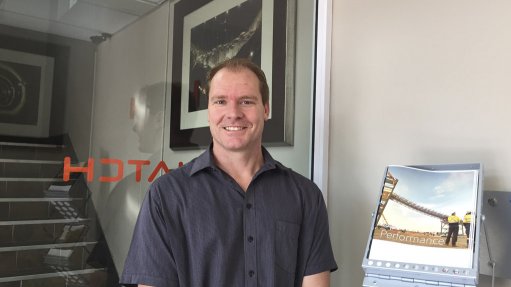
EVERT JACOBS The PLP embodies our complete approach and tools to deliver projects throughout their life cycle
Project work for global engineering company Hatch’s Environmental & Social Services Group (Hatch ESSG) is picking up significantly, owing to its continual evolution of the Hatch project life-cycle process (PLP), which includes a strong focus on integrating the social, community and environmental aspects of projects with the engineering and overall project management functions.
“The PLP embodies our complete approach to deliver projects throughout our clients’ life cycle, from concept to execution and through to operation in a structured and phased method,” says Hatch ESSG interim lead Evert Jacobs.
The PLP Documentation Framework prescribes the fully integrated project delivery philosophy and front-end loading phases, which include work processes, project documentation and organisation, as well as information systems required to equip projects and guide project delivery disciplines.
Jacobs explains that this framework applies to projects of any scale, with the necessary modification of applied documents and methods available for PLP for small projects.
“The key strength is in the way we integrate social and environmental requirements into engineering phases.”
Jacobs mentions that, in this year, the company is applying the PLP to the setting up of a client’s programme management approach to social spending as part of an infrastructure development programme.
“Requirements for the project include the development of strong social and environmental development integration within a larger construction programme,” he adds, explaining that Hatch ESSG had to integrate social and environmental goals and targets into existing developments and across infrastructure programmes.
Hatch ESSG is still in the very early stages of setting up the programme, Jacobs adds.
“The biggest benefit so far has been the unpacking of the project elements into smaller components that provide a better understanding of the deliverables required to meet the individual discipline – such as social, environmental and engineering – objectives within the larger development plan.”
The next step, he explains, will be to tailor the projects within the overall programme and separate them into the different stages of development.
Other Projects
Some of the projects Hatch ESSG has been working on, in partnership with the company’s engineering teams, include a route alignment sensitivity analysis for a greenfield railway line in West Africa and a similar study for a greenfield petroleum pipeline in South Africa.
Another project included the environmental and social management of authorisations and permit applications during the prefeasibility and feasibility studies and construction of 1 000 km of rail and a related greenfield export terminal in South Africa.
Hatch ESSG was also responsible for environmental management during the prefeasibility and feasibility studies for a manganese mine development of a greenfield mine site in South Africa.
Further, assistance with environmental and social management for a power project in Zimbabwe was also provided by Hatch ESSG and included the management of environmental services and compilation of a relocation action plan.
Hatch ESSG was also responsible for the implementation of a sustainable development programme as part of the Dingleton town resettlement for iron-ore mining company Kumba Iron Ore, which included construction management and social development, capacity building and upliftment of the local community through their participation in construction contracts.
Jacobs explains that this project included assisting smaller businesses – that would in future become suppliers to the mine – in preparing and planning invoicing mechanisms to ensure their participation in the local economy.
He further adds that, in the last quarter of 2015, Hatch identified key opportunities that would require further expansion of its environmental and social services in, for example, Cape Town, Port Elizabeth and Durban, owing to a growing demand.
“Our traditional strength is in our project management capabilities, but this often means that we have to outsource more specialised services. Our aim is to develop our specialised services to bring a more integrated and centralised approach to environmental management, from where we can draw on different experiences and skills to ensure that our projects are delivered successfully and on time,” he concludes.